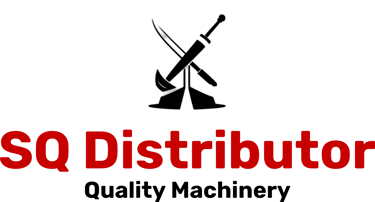What factors cause Loader hydraulic system leakage?
6/27/20232 min read
According to statistics, hydraulic system failures rank first in the proportion of failures in various systems of loaders.
Classification of hydraulic system leaks
The leakage of the hydraulic system of the loader is mainly caused by the pressure difference generated when the liquid flows in the hydraulic components and pipelines and the gaps between the components.
There are two main types of oil drain in the hydraulic system of the loader, one is the oil drain sealed by the static joint surface (that is, the fixed part, mainly including the joint between the cylinder head and the cylinder barrel, the connection of each pipe joint, etc.); The joint surface (that is, the sliding part, mainly including the valve stem of the multi-way valve, the cylinder piston and the inner wall of the cylinder barrel, the piston rod and the cylinder head guide sleeve, etc.) is sealed to drain the oil.
It is specifically manifested as external leakage and internal leakage. External leakage mainly occurs outside the hydraulic system, that is, oil leaks from each component of the hydraulic system to the external environment. Internal leakage refers to the flow of hydraulic oil from the high pressure side to the low pressure side inside the system due to the existence of the pressure difference between the high and low pressure sides and the failure of the seal. What factors cause hydraulic system leakage?
Selection of hydraulic oil: Hydraulic oil is not only a medium for power transmission in the hydraulic system, but also a lubricant and coolant. To ensure that the hydraulic system can work reliably, effectively and economically under various conditions, the hydraulic oil must have suitable viscosity and good viscosity-temperature characteristics. Viscosity is an important indicator of hydraulic oil. For a certain hydraulic system, only the working medium with a limited range of viscosity can be used to work normally. If the viscosity is too high, the resistance will increase when the oil flows, the temperature rises quickly, the energy loss will be large, and the system efficiency will be reduced; Leakage increases.
Improper installation and assembly: Incorrect installation and assembly procedures can contribute to hydraulic system leakage in loaders. If components are not properly tightened, seals are not correctly positioned, or fittings are not secured, it can result in oil leakage. Additionally, using incorrect seals or gaskets that do not match the specifications of the loader's hydraulic system can lead to inadequate sealing and subsequent leakage.
Wear and tear: Over time, normal wear and tear can cause hydraulic system components to degrade, resulting in leakage. Seals, O-rings, gaskets, and other rubber or elastomeric parts can deteriorate, lose their elasticity, or develop cracks, leading to oil leaks. Similarly, continuous use and pressure fluctuations can cause valves, pistons, cylinders, and other moving parts to experience wear, leading to increased clearances and potential leakage points.
Contamination: Contamination of the hydraulic system can significantly contribute to leakage issues. Particles, debris, dirt, and other contaminants can enter the hydraulic fluid, causing damage to seals, valves, and other components. Abrasion caused by contamination can create irregularities on the sliding surfaces and compromise the sealing effectiveness, resulting in oil leaks.
Excessive system pressure: Operating the loader's hydraulic system at excessively high pressures can exceed the design limits of seals and other components, causing them to fail and resulting in leaks. Pressure relief valves and pressure regulators play a crucial role in maintaining the proper pressure range within the hydraulic system. If these components malfunction or are not properly adjusted, it can lead to pressure spikes and subsequent leakage.
Lack of proper maintenance and servicing: Regular maintenance and servicing are essential to ensure the longevity and performance of the hydraulic system. Failure to perform routine checks, fluid changes, and inspections can lead to unnoticed issues that develop into leaks over time. Additionally, neglecting to address minor leaks promptly can worsen the problem and lead to more significant hydraulic system failures.
Contact our Sales Rep... Today
Business Mail Address;
Sunrise Quality,
Parcel Locker 10269 82535,
77 Bellwood St,
DARRA, QLD, 4076
Unsubscribe Here:
Business Email: sunrisequalityservice@gmail.com
Business Contact: +61 0457 228 166
ABN: 40 418 523 392
